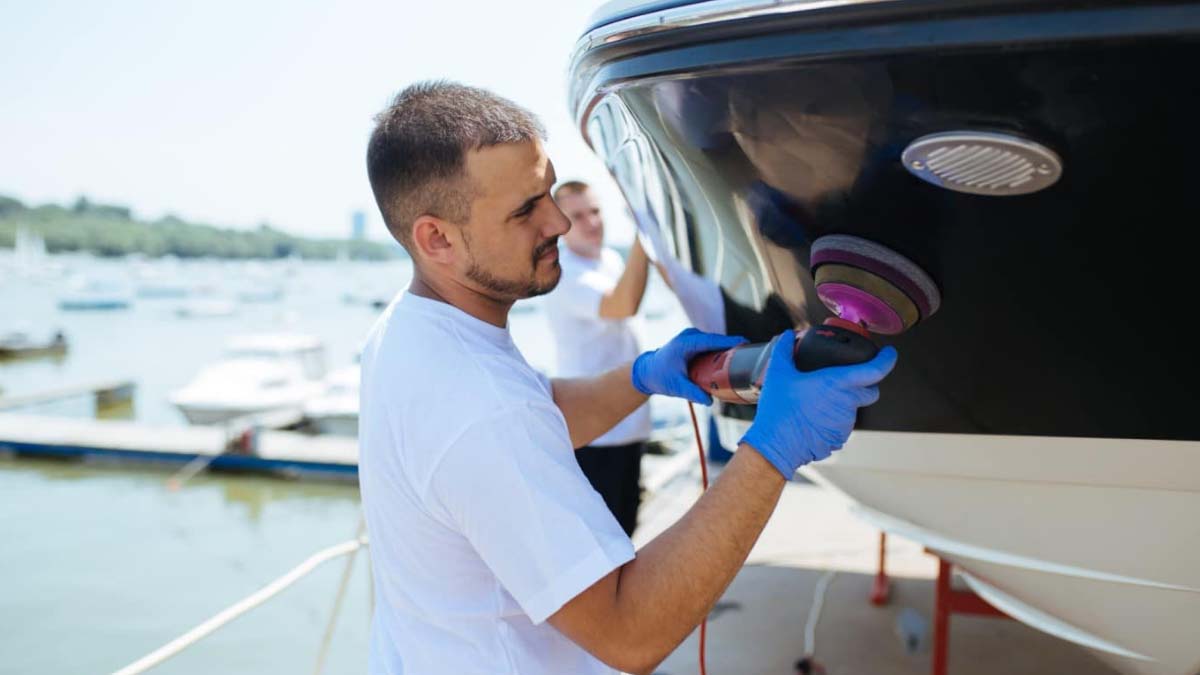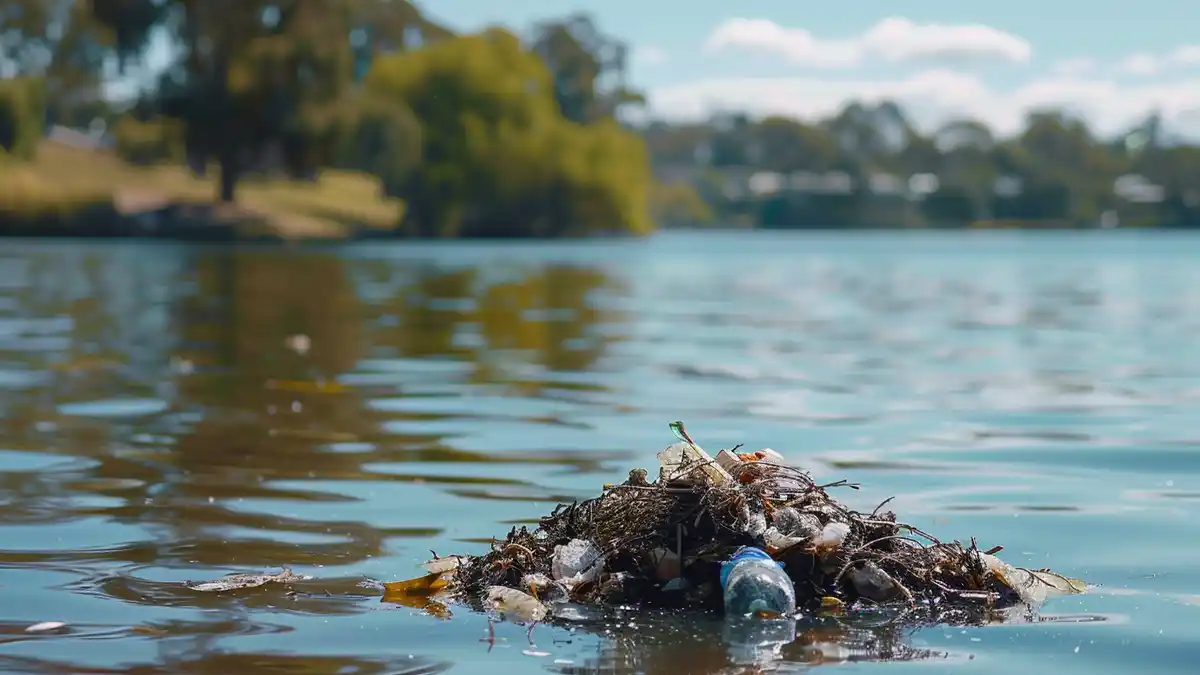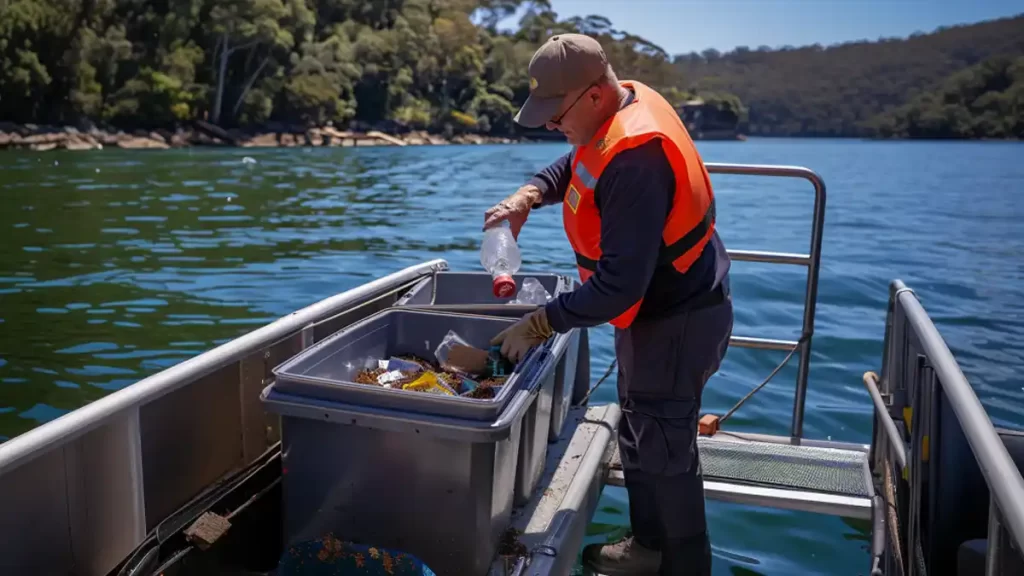
Boat Maintenance 101: Keeping Your Vessel Shipshape
Welcome aboard as we dive into our guide to ensuring your boat is primed for the diverse challenges and scenic wonders of Victoria’s waterways.
🇦🇺 Summer Captains Sale! Save $70 on the online marine and PWC licence course – limited time only!

Victoria’s waterways are some of the most beautiful in the world, offering stunning landscapes, diverse wildlife, and recreational opportunities for boaters of all kinds. As skippers, it’s our responsibility to ensure these waterways remain pristine for future generations. Here are some green boating tips to help you minimize your environmental impact and keep Victoria’s waterways clean.
Maintain Your Boat – Regular maintenance not only keeps your boat running efficiently but also reduces pollution. Check for oil and fuel leaks, ensure the engine is properly tuned, and use eco-friendly cleaning products. Well-maintained boats are less likely to emit harmful substances into the water.

Fuel Responsibly – Fuel spills are a major pollutant in waterways. When refueling, use a fuel collar or bib to catch drips and avoid overfilling your tank. Always refuel away from the water if possible. Consider using a marina that follows best practices for environmental protection.
Waste Management – Never dispose of trash or sewage in the water. Ensure your boat is equipped with adequate waste storage facilities, including a holding tank for sewage. Use pump-out stations to empty your tanks. Carry reusable bags and containers to minimize single-use plastics on board.
Eco-friendly Products – Choose biodegradable and non-toxic products for cleaning and maintenance. Avoid products with phosphates and other harmful chemicals that can damage aquatic ecosystems. Using green alternatives helps protect water quality and marine life.

Respect Marine Life – Maintain a safe distance from wildlife and avoid disturbing their natural habitats. Adhere to no-wake zones and speed limits to reduce erosion and protect sensitive areas. Be mindful of fishing regulations and practice catch and release whenever possible.
Anchor Wisely – Use designated anchoring areas to avoid damaging the seabed and aquatic plants. When anchoring in an unmarked area, use a sandy or muddy bottom where your anchor will do less damage. Avoid anchoring in coral reefs or seagrass beds.
Prevent Invasive Species – Clean your boat and equipment thoroughly before moving to a different waterway. Invasive species can hitch a ride on your hull, propellers, and fishing gear, leading to ecological imbalances. Use high-pressure water or hot water to clean your boat and dispose of any plant or animal material in the trash.

Educate Your Crew – As a skipper, you set the standard for your crew. Ensure everyone on board understands and follows eco-friendly boating practices. Share information about the importance of protecting our waterways and encourage others to take an active role in conservation.
Plan and Prepare – Plan your trips carefully to minimize fuel consumption and environmental impact. Use charts and apps to navigate efficiently and avoid sensitive areas. Bring all necessary supplies to reduce the need for unplanned trips back to shore.
Support Clean Marinas – Choose marinas that participate in environmental programs and have green practices in place. These marinas often provide better facilities for waste disposal, fueling, and boat maintenance, making it easier for you to follow eco-friendly practices.

As skippers, we hold the key to preserving the natural beauty and health of Victoria’s waterways. By adopting these green boating tips and leading by example, we can ensure that our beloved lakes, rivers, and coastal areas remain clean and vibrant for all to enjoy. Let’s take responsibility and make sustainable boating a priority, protecting our waterways for future generations.

Welcome aboard as we dive into our guide to ensuring your boat is primed for the diverse challenges and scenic wonders of Victoria’s waterways.

Discerning between EPIRBs and PLBs is crucial for boaters, offering tailored safety solutions in Australia’s maritime playground.